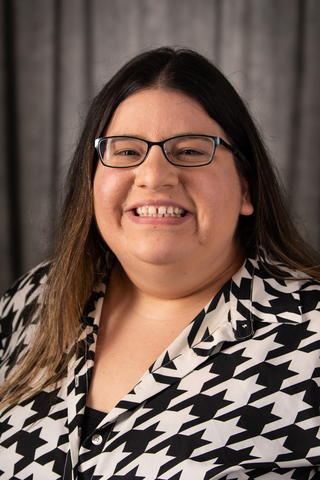Learning about the causes and consequences of human behavior and the tools for effective cross-cultural communication are critical in today's global community.
Few fields have a broader scope and, perhaps, more career opportunities than sociology and anthropology.
Sociologists and anthropologists are interested in how people live together in this world, in our neighborhoods, across the country, and around the globe. We study people now and in the past, how they relate to each other, and all that they think, do, and make—food, music, families, nations, tools, houses, institutions. We are particularly interested in the way race, class, gender, sexuality, and other elements of identity affect people’s experiences and opportunities, and what can be done to promote greater social justice.
Core courses in the SOA major cover both disciplines, and students are free to specialize in either anthropology or sociology through electives or through a minor.
We offer an interdisciplinary B.A. in Sociology/Anthropology as well as minors in Anthropology and in Sociology. Students completing the B.A. in Sociology/Anthropology can apply to pursue the Honors Track.
Career Paths
- Public Service/Government
- Law
- Education
- Medicine/Health Sector
- Social Work
- Business/Marketing
- Not-for-profit sector
- Graduate school
- Archaeology
- Cultural anthropology
- Criminal Justice/Law enforcement
- Cultural resource management
- Archivist/Curator
SOA Highlight: Dr. Maria Dueñas Studies Racial Oppression and Resistance in Latinx Families
Assistant Professor of Sociology Dr. Maria Dueñas’s fascinating new research study provides a window into the ways that Latin-American descendant families manage oppressive racial discourses within their family dynamics. Based on interviews with 65 different families of Latinx descent, Dr. Dueñas has developed the concept of the Racial and Ethnic Socialization Continuum (RES) to conceptualize the different levels of resistance or acceptance of U.S assimilationist culture, A.K.A “Whiteness”. Specifically, the ways that families face assimilationist ideologies and either resist or perpetuate them within their familial units, such as the ways parents teach their children to understand race and their cultural identity. Either through internalizing mainstream racial ideologies such as “Color-Blind Racism” or resistance through strengthening ties to their cultural origins, every family has their own ways of handling the racial discourses they encounter in the U.S.
Dr. Dueñas’ latest article was recently published in the academic journal, "Identities: Global Studies in Culture and Power." More resources can be found on her YouTube channel and other social media sites.

Distinction
Interdisciplinary Major
UIS offers a major that combines the strengths and skills of both sociology and anthropology. This allows students to pursue careers or graduate school in either area.
Research Skills and Opportunities
Sociology/Anthropology emphasizes undergraduate research through skill development and opportunities to participate in individual and collaborative projects
Individualized Attention and Success
The department has an above-average graduation rate and excellent time-to-degree.
FAQs
Why Study Sociology/Anthropology (SOA)?
SOA is an interdisciplinary major, combining the strengths and skills of both sociology and anthropology, which can be an advantage to students as they pursue their career goals.
SOA provides in-class training in how students can promote themselves by incorporating SOA skills and experience (that employers and graduate schools are looking for) on their resumes.
An SOA degree helps prepare students for a wide variety of careers, including education, business, medicine/the health sector, criminal justice, legal studies, law enforcement, social work, public service/government, and more.
The SOA major is designed to accommodate transfer students—our core courses are at the 300 and 400 level. We also accept lower-division courses to satisfy some requirements in the major.
Almost all of our electives and most of our core courses ALSO satisfy ECCE and other general education requirements.
SOA students receive individualized attention from faculty members to help them get the most out of their education and prepare for the future. The department has an excellent graduation rate and time-to-degree.
SOA has recently added an Honors Track that allows students to develop research skills and experience in their areas of interest.
SOA also offers a minor in sociology and a minor in anthropology with significant freedom to take classes that complement students’ majors and career goals.
What do sociologists and anthropologists study?
Sociologists and anthropologists are interested in how people live together in this world—in our neighborhoods, across the country, and around the globe. We study people now and in the past, how they relate to each other, and all that they think, do, and make—food, music, families, nations, tools, houses, and institutions. We are particularly interested in the way race, class, gender, sexuality, and other elements of identity affect peoples’ experience and opportunities, and what can be done to promote greater social justice.
What Can You Do With This Degree?
Career paths include: Medicine/health sector, business, law, law enforcement, education, government, social work, not-for-profit sector, archaeology, cultural resource management, archivist/curator, & more!

